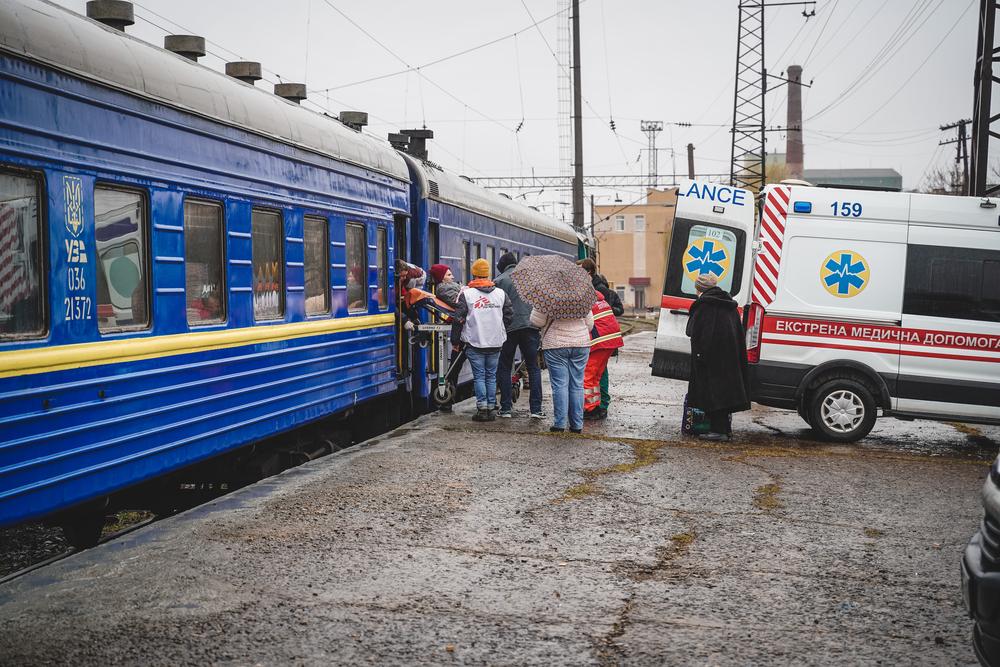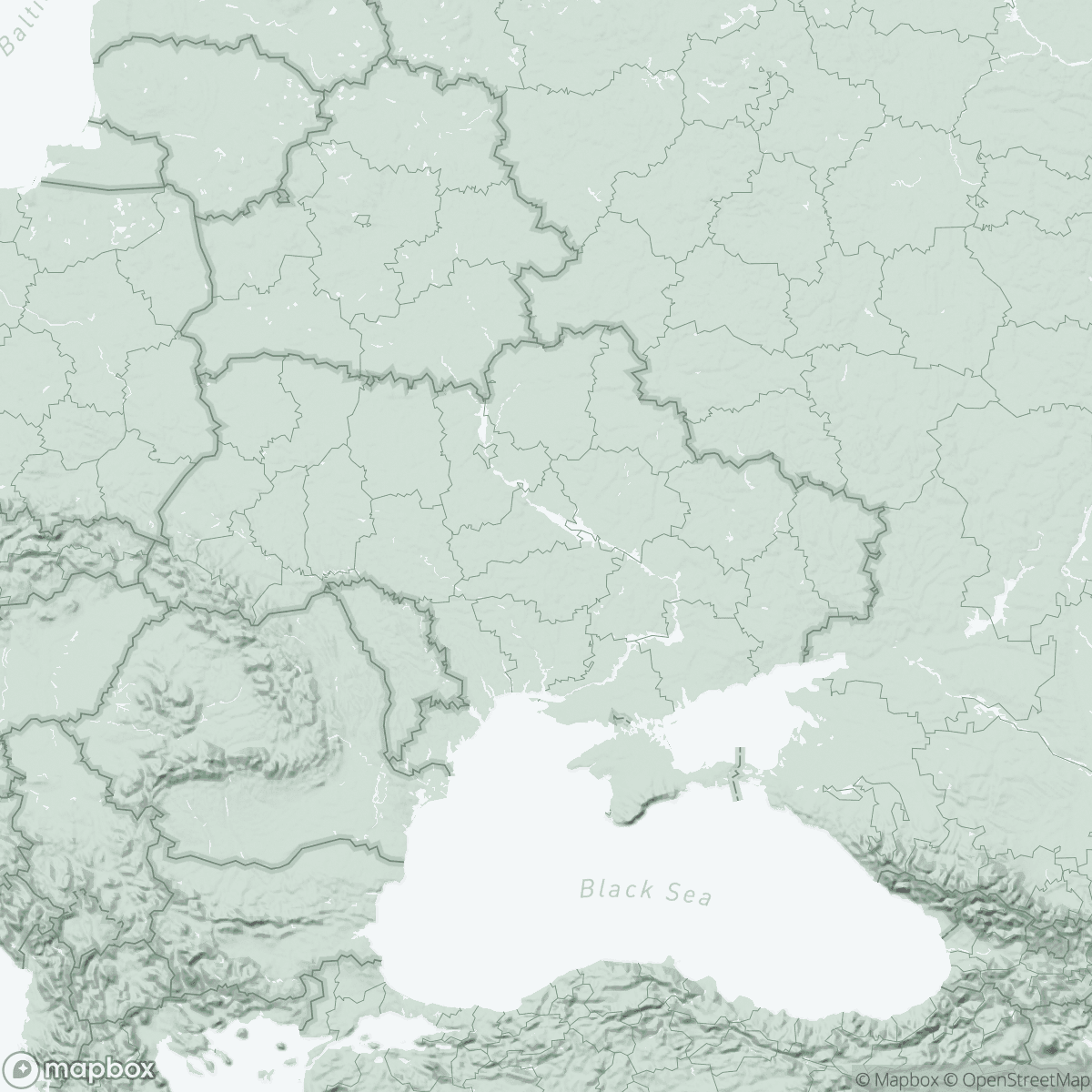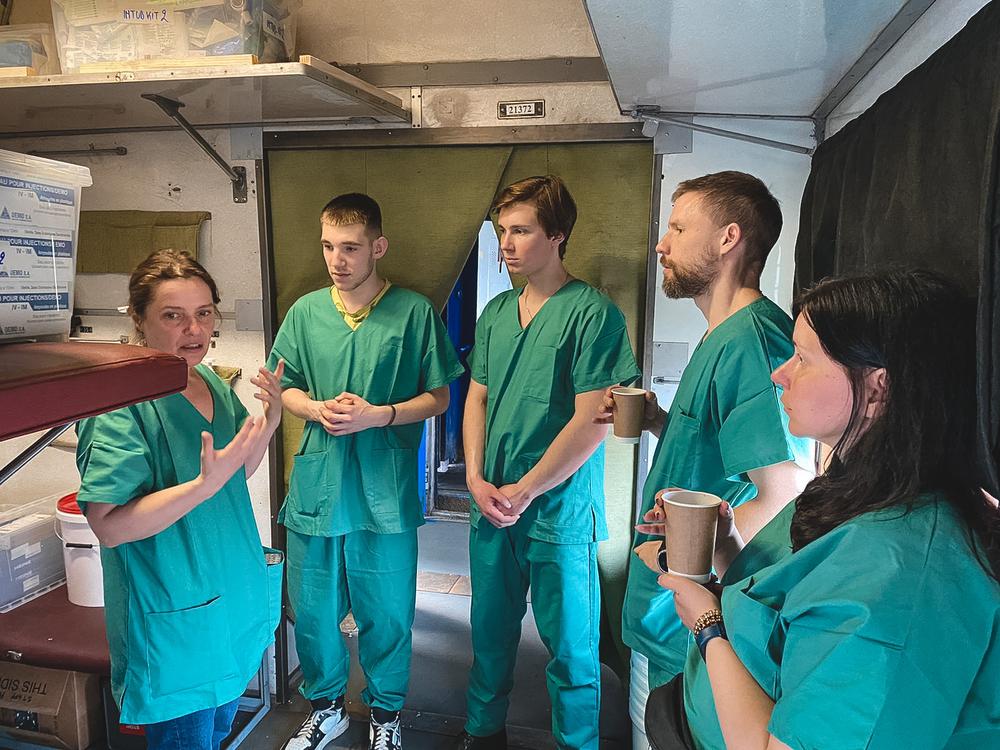
“You have a medical train? I have patients for you”
In 1 click, help us spread this information :
On Tuesday 29 March, we went on a visit to Zaphorizhzhia and met the regional health director. We said we wanted to hear from him if there are any things he needs from us. He wanted to discuss with the MSF teams the possibility of transferring some patients. To do this, we needed to assess their condition.
It is important that the hospital in Zaphorizhzhia, which is close to a front line, can refer some of its patients to maintain its capacity to care for them. However, we needed to ensure that these patients could cope with the journey and receive the same or higher level of care after their referral.
In this process of medical evacuation, it is important to obtain the opinion of the family. The mother of an injured child was adamant: “I want my child to be medevacked because I think it is the only chance for my child to keep his legs.” And the child looked at us and said: “I want to walk again”. By then it was the end of the day and we had to leave to be able to pass checkpoints. We said we cannot promise anything, we’ll see what’s possible. And the hospital director and many of the interns were there and they were insistent:
You need to get them out of here. They need to survive. This is our hope”.
There was one patient, a three-year-old child with very severe abdominal injuries, who we thought would not be stable enough for the transfer. At one stage, the mother said: “My child is going to die during the transfer.” I’ve been a practicing paediatrician for the past 30 years, and what I told everyone is that when a mother tells you that, she’s never wrong. We evaluated this child three times, together with the directors of the hospital. When we came on Thursday morning, the doctors were about to take the child back into the operating theatre, and we all came to the same conclusion; this child was not stable enough for the transfer. This decision took time, but it was a decision we all took together.
The next day, we came back, three of us, and we screened every single patient. Our key point was to consider for each patient – could this person sustain a 20-hours transfer where we don’t have ICU [Intensive Care Unit] level of care on this first short version of the medical referral train?
And then Thursday morning we came back early, to do another check on all the patients before doing the referral, to make 100 percent sure they were stable.
There was one patient, a three-year-old child with very severe abdominal injuries, who we thought would not be stable enough for the transfer. At one stage, the mother said: “My child is going to die during the transfer.” I’ve been a practicing paediatrician for the past 30 years, and what I told everyone is that when a mother tells you that, she’s never wrong.
We evaluated this child three times, together with the directors of the hospital. When we came on Thursday morning, the doctors were about to take the child back into the operating theatre, and we all came to the same conclusion; this child was not stable enough for the transfer. This decision took time, but it was a decision we all took together.
I particularly recall a woman who had a blast injury in her face and had lost her right eye. We had asked her to send us a picture on Tuesday, as we wanted to assess her condition and we had to leave that evening to get back before curfew. And instead of sending us a picture with the injury, she sent us a picture of herself before the injury. And when we got back to the hospital the next day, the first thing she told us was: “I want to be beautiful again. For my husband. For my child.”
These stories from these few patients – this is the story of many thousands of people.
The other thing that is amazing is the dedication I saw. For example, when we did the transfer to the train on Thursday morning, the ICU physician – not the interns but the senior boss of the ICU – came and did the transfer himself. He paid great attention to the boy with the severe leg injuries. It was him who lifted the stretcher onto the train, and waited there a while to check the patient was fine. And when he was finally satisfied, he looked at me and said: “I think my job is finished now. I hand over to you.”


